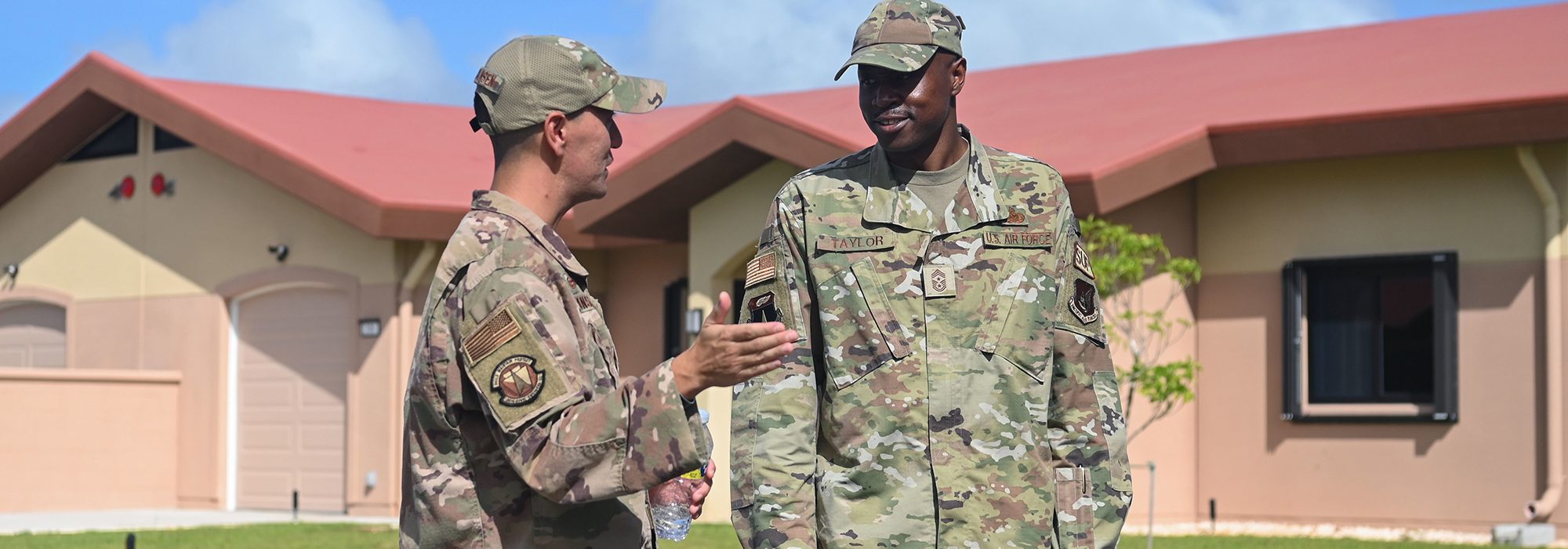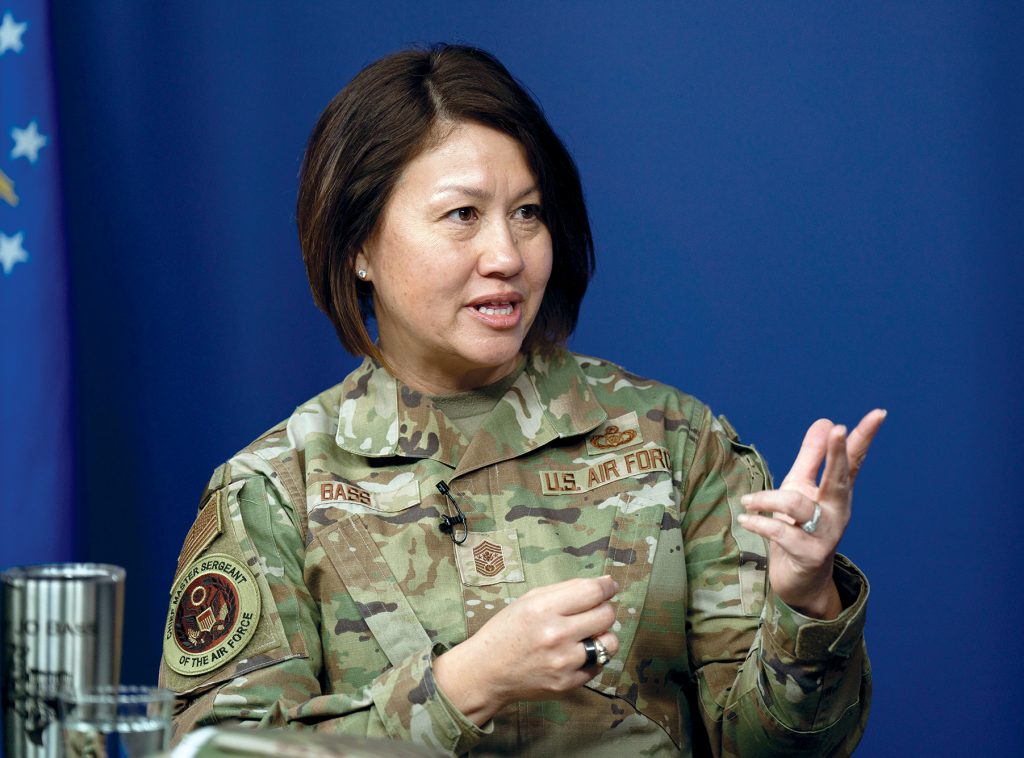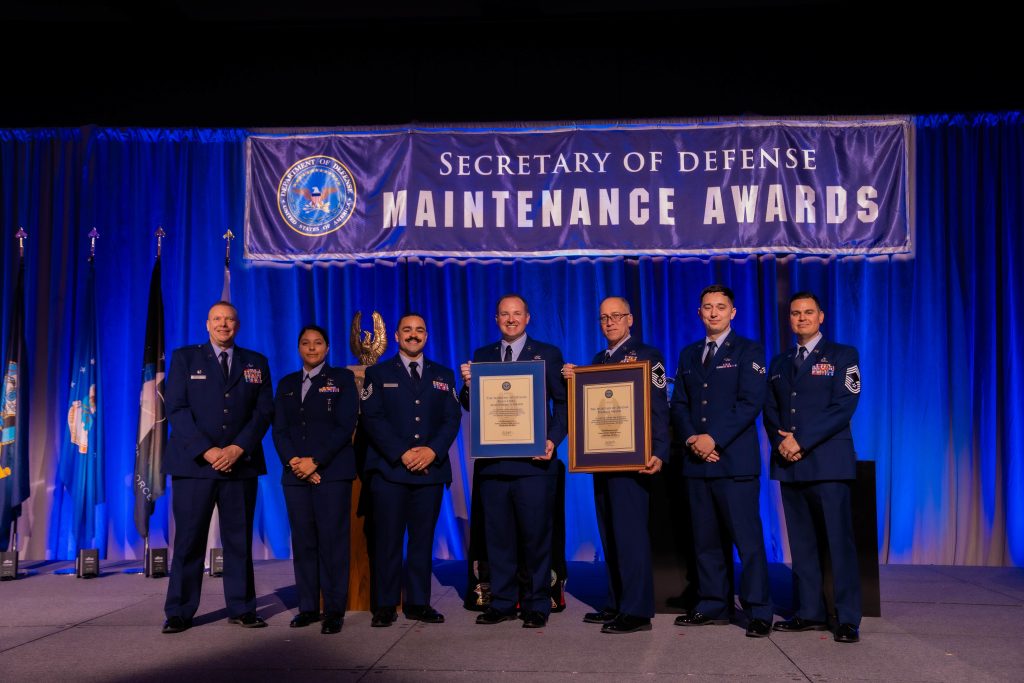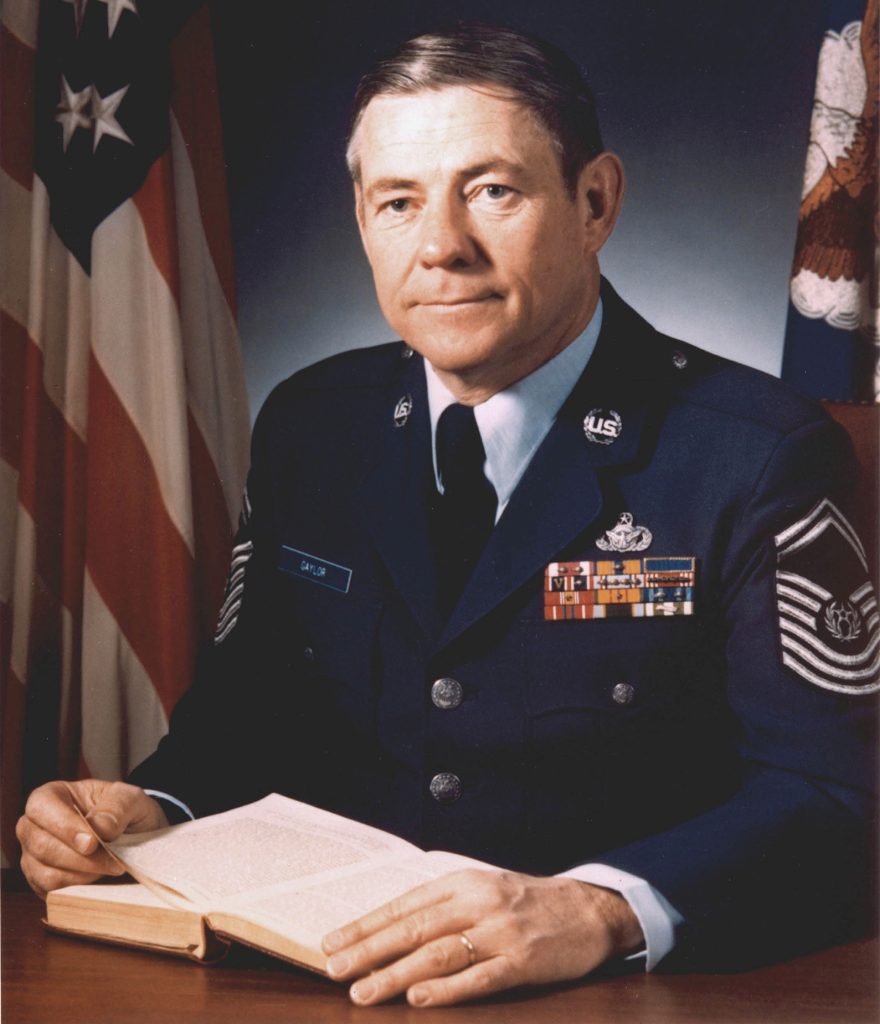BAH Rises 5.4%, On Average
By Greg Hadley
Basic allowance for housing increased 5.4 percent on average as of Jan. 1, which combined with last year’s stunning 12.1 percent jump, makes for a 17.5 percent increase in just 13 months.
Increases vary by location, paygrade, and whether members support dependents. Historic inflation drove skyrocketing housing costs in 2022 but moderated in 2023. The basic allowance for subsistence rose 1.7 percent for 2024.
The three Air Force and Space Force locations with the greatest increases are:
- Barksdale Air Force Base, La., about 13 percent.
- Sheppard Air Force Base, Texas, also about 13 percent.
- Joint Base Charleston, S.C., about 12 percent.
Other bases getting at least 5 percent increases after topping 15 percent growth last year include:
- Malmstrom Air Force Base, Mont.
- Hanscom Air Force Base, Mass.
- Ellsworth Air Force Base, S.D.
- Seymour Johnson Air Force Base, N.C.
- Shaw Air Force Base, S.C.
A few bases did see decreases in BAH, including:
- Nellis Air Force Base, Nev.
- Beale Air Force Base, Calif.
- Mountain Home Air Force Base, Idaho
- Patrick Space Force Base, Fla.
- McConnell Air Force Base, Kan.
BAH is intended to cover 95 percent of housing costs. For 2024, that means troops’ out-of-pocket expenses for housing should range from about $85 to $194 per month. The Defense Department calculates BAH through annual surveys of roughly 300 rental markets across the country, determining the median price of rent and utilities for six different housing options in each of those markets.
Congress wants the Pentagon to reconsider its methodology. A year ago, in the 2023 National Defense Authorization Act, lawmakers directed the Pentagon to report back on the “efficiency and accuracy of the current system used to calculate BAH.” With that report still pending, lawmakers declined to support a pilot program testing an alternative approach.
Pay Tops Bass’ Concerns in Final Months
By David Roza
Chief Master Sergeant of the Air Force JoAnne S. Bass will retire in March after a historic tenure as USAF’s 19th top enlisted Airman. Between now and then, compensation tops her concerns.
“Nobody joins the military to get rich, but they have to be compensated appropriately,” Bass said Jan. 4 in a livestreamed discussion with Air & Space Forces Association president and CEO retired Lt. Gen. Bruce “Orville” Wright.
“If you look at today’s pay and compensation model, specifically the pay chart, it really hasn’t evolved since 1949,” she added.
New technical career fields like cybersecurity do not align with the existing track for Airmen, she said. “If you grab someone who’s 28 years old and they already have all of the certifications in the skill that we’re going to do, we’ve got to give them some profession of arms training and skill sets. But do they come in as an E-1 or E-2 or E-3?” she asked. “I don’t know.”
The Air Force has a working group analyzing these and others quality-of-life and benefit issues, such as health care and child care.
“Today’s military family looks different than it did 30 years ago,” Bass said. “You have more dual-working parents, more dual-military parents, more single parents.”
What’s needed now is “unconstrained,” out-of-the-box thinking to adapt and keep pace with the civilian competition, she said. Large national retail and restaurant chains provide health and dental care today for entry-level employees, she said, and that has altered the competitive balance.
“Again … nobody joins the military to get rich, at least I don’t think so. But we can’t be too far off when it comes to what is being offered in the economy today in America,” she added.
Bass acknowledged that Air Force base commanders “are doing phenomenal things” to address child care needs at a local level. Overall, child care capacity has increased over the past year, there are more family child care providers and fewer families on waiting lists, she said.
“But we’ve got to take a look as a Department of Defense at ‘how do we increase the capacity even more so that our service members can focus on the mission and know that their children will be taken care of?’”
The CMSAF plans on discussing these and other quality-of-life issues with lawmakers later this month as she and other senior military enlisted leaders press for more support for child development centers, youth centers, and other personnel programs.
“We’ve made a promise to America’s moms and dads that if your son or daughter joins the military, we will provide a roof over their head … we will take care of our national treasures,” Bass said. “And that starts with pay and compensation, health care, child care, all of those.”
Kadena Maintainers Win DOD Honors
By David Roza
Maintainers with the Air Force’s largest combat wing took home the Phoenix Award as the best field-level maintenance unit in the entire Department of Defense for 2023. The 18th Maintenance Group from Kadena Air Base, Japan, accepted the prize at the DOD Maintenance Symposium in San Diego.
The 18th wing’s 2,400 Airmen generated 7,601 sorties and 17,600 flight hours in 2023, even as they worked to phase out aging F-15C/D fighters for their final trips back to the U.S. They also support KC-135 refueling tankers, HH-60 helicopters, and E-3 airborne warning and control aircraft among Kadena’s 80 total aircraft, which fly air interdiction, combat search and rescue, aerial refueling, aeromedical evacuation, and command and control battle management missions across the Indo-Pacific theater.
Located on Okinawa, just 375 miles from Taiwan and 400 from mainland China, Kadena is a vital position and potential staging ground for U.S. operations in the region. As the base phases out its aging F-15s, a revolving door of fourth- and fifth-generation fighters have flown in to maintain a fighter presence there. In November, the wing hosted a 33-plane “elephant walk” where helicopters, tankers, Air Force and Navy fighters, an MQ-9 drone, and other aircraft taxied down the runway together.
Throughout 2023, the 18th Maintenance Group “provided intermediate-level maintenance, engine maintenance, and test equipment calibration for the entire Indo-Pacific region as the engine centralized repair facility,” a DOD press release said. It also hosted the only active-duty Air Force base-level Precision Measurement Equipment Laboratory.
Another unit recognized for field maintenance excellence was the 912th Aircraft Maintenance Squadron at Edwards Air Force Base, Calif., in the small category. Out of a total field of six winners, only one can receive the annual Phoenix Award. The award is named after the mythological bird that, consumed by flames, is later reborn from its own ashes, a feat that evokes bringing a broken aircraft back to life.
Obituary
Robert D. Gaylor, Fifth Chief Master Sergeant of the Air Force, Dies
By John A. Tirpak
R
obert D. Gaylor, who served from 1977-1979 as the fifth Chief Master Sergeant of the Air Force, died Jan. 17. He was 92.
Gaylor was appointed to the service’s top enlisted job by Chief of Staff Gen. David C. Jones—for whom he had served as senior enlisted adviser in U.S. Air Forces in Europe. He also advised Jones’ successor, Gen. Lew Allen Jr., and Air Force Secretary John C. Stetson.
During his tenure as CMSAF, Gaylor focused on leadership training and development in the noncommissioned officer corps—working to open 70 leadership schools across the Air Force—as well as reducing management levels and bread-and-butter issues, such as assignment choice and travel for enlisted families.
He was also instrumental in bringing about uniforms for pregnant women, a non-trivial matter—the Air Force was suffering a brain drain of mid-career women in the mid-1970s because they had no way to serve in uniform. Retention of women rose significantly afterward.
After his retirement in 1979, Gaylor continued to talk to Airmen across the Air Force about leadership and his experiences in the service, until just a few months before his death. In retirement, he taught leadership and management at USAA, a private insurance firm that focuses on Active-duty and veteran customers.
Gaylor entered the Air Force in 1948, just a year after the service was created, and after graduation from basic training, chose to be a security policeman. In his early career he was assigned to bases in Texas, Mississippi, Louisiana, and South Korea. In a 2017 interview, Gaylor said that only a small handful of those in his basic training class had a high school diploma, and having one helped him excel in his early career.
He attained the rank of master sergeant in 1956 at the age of 25, after just seven years in the service. In the interview, Gaylor said he never had any formal professional military education (PME) before becoming a senior master sergeant, and observed that in those days, if a command had no NCO academy, its NCOs went without. He was later determined that Airmen have equal access to PME.
In 1958, master sergeant was the highest enlisted rank in the service, and Gaylor wanted to advance, so he applied to become a warrant officer. His application was returned without action, but he was encouraged to stay in service because the Air Force would be creating two further enlisted ranks: senior master sergeant and chief master sergeant. He reached the new highest enlisted rank in 1968.



